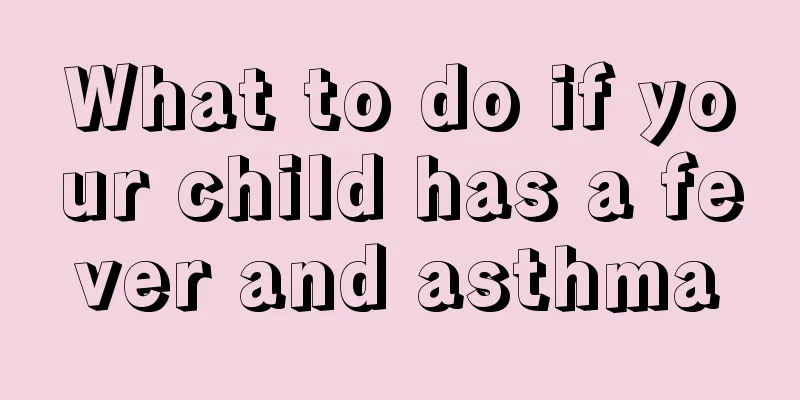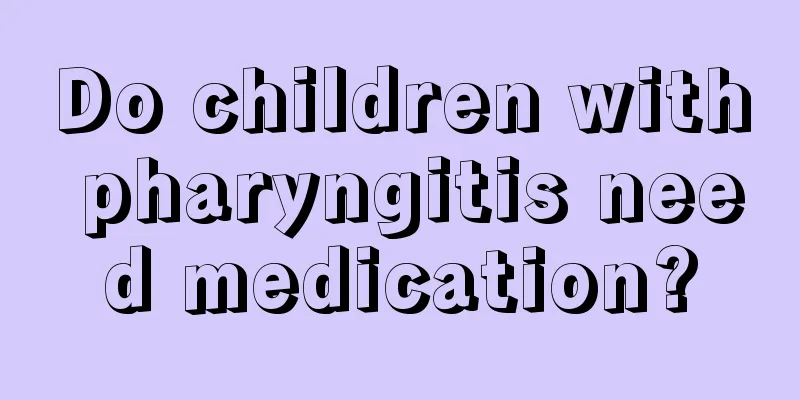What to do if your child has a fever and asthma

|
Fever is a very common disease in our lives, and many diseases are accompanied by symptoms of fever. Compared with adults, the consequences of fever in children are more serious. Because when a child has a fever, his immunity will drop rapidly. If the fever cannot be reduced for a long time, it may even affect the child's brain. Some children will also have asthma while having a fever. So, what should we do if our child has a fever and asthma? It is usually caused by bronchitis. If it is serious, it is recommended to seek medical attention early. Bronchitis is a common respiratory disease in children with a high prevalence. It can occur throughout the year and reaches its peak in winter and spring. When suffering from bronchitis, children often have varying degrees of fever, cough, loss of appetite, or vomiting, diarrhea, etc. Younger children may also have symptoms of bronchiolitis such as wheezing and gasping. Although a small number of children may develop bronchopneumonia, most children have mild symptoms and are mainly treated with medication and care at home. Parents should follow the doctor's instructions to give their children medication on time and provide good home care: 1. Keep warm: Temperature changes, especially cold stimulation, can reduce the local resistance of the bronchial mucosa and aggravate bronchitis. Therefore, parents should add or remove clothes for their children in time as the temperature changes. 2. Feed more water: Children with bronchitis will have varying degrees of fever, and water evaporation is greater, so you should pay attention to feeding the child more water. 3. Adequate nutrition: When children suffer from bronchitis, they consume a lot of nutrients. In addition, fever and bacterial toxins affect gastrointestinal function and cause poor digestion and absorption. Therefore, nutritional deficiencies in the children's bodies cannot be ignored. Improving your baby's immunity is the key. It is recommended that you give your baby colostrum, such as Life Sunshine Colostrum. Children are immature, and their bronchi, gastrointestinal tract and immune systems are relatively weak, making them prone to infection. Bovine colostrum is rich in immunoglobulins, which can neutralize and eliminate pathogenic bacteria in the intestines, promote the growth of beneficial bacteria, and prevent the occurrence of intestinal diseases; at the same time, immune substances such as immunoglobulins, anti-inflammatory factors, macrophages, etc. can enhance resistance, reduce the chances of colds, pneumonia, diarrhea and other diseases, and improve the body's immunity and resistance. 4. Turn over and pat the back 5. Reduce fever: Children with bronchitis usually have a low to moderate fever. If the body temperature is high, older children can be cooled physically, such as applying a cold towel to the head or bathing with warm water. However, this method is not suitable for young children. If necessary, medication should be used to reduce the temperature. 6. Maintain a good family environment: The child’s room should be warm, well ventilated and lit, and the air should have a certain humidity to prevent excessive dryness. |
<<: What are the symptoms of neonatal asthma?
>>: The child has a sound in the trachea when breathing
Recommend
Symptoms of psychological disorders in children
Many parents now hold the mentality that as long ...
What are the causes of low hemoglobin in newborns?
If the newborn's hemoglobin is low, parents m...
What anti-inflammatory medicine should children take for swollen lymph nodes?
Children in their early childhood have poor physi...
Can children digest snail shells?
Although snails taste delicious, they live in wat...
What should we pay attention to when it comes to children’s dental beauty?
The tooth replacement stage for children is very ...
What to do if your newborn has watery stools
After the baby is born, mothers pay attention to ...
What should I do if my child has a fever and bacterial infection?
If some children are in poor health, the patients...
What to do if your two-year-old baby speaks late
When a child says his first word or calls "M...
Can newborns use erythromycin ointment?
We all know that when a newborn is just born, bec...
What are the reactions to ADHD in children?
Children are always active and simply cannot stop...
What diseases should children be careful of if they have a long-term cough?
Children's long-term cough can make our paren...
What causes children's ears to smell?
When children are young, people generally do not ...
What to do if your child has cough and asthma
Once a child has asthma problems, it can be very ...
What to do if your child has autism
You can tell a lot about a child's future at ...
How to protect children's voice during voice change
We know how important our throat is to us. We use...









